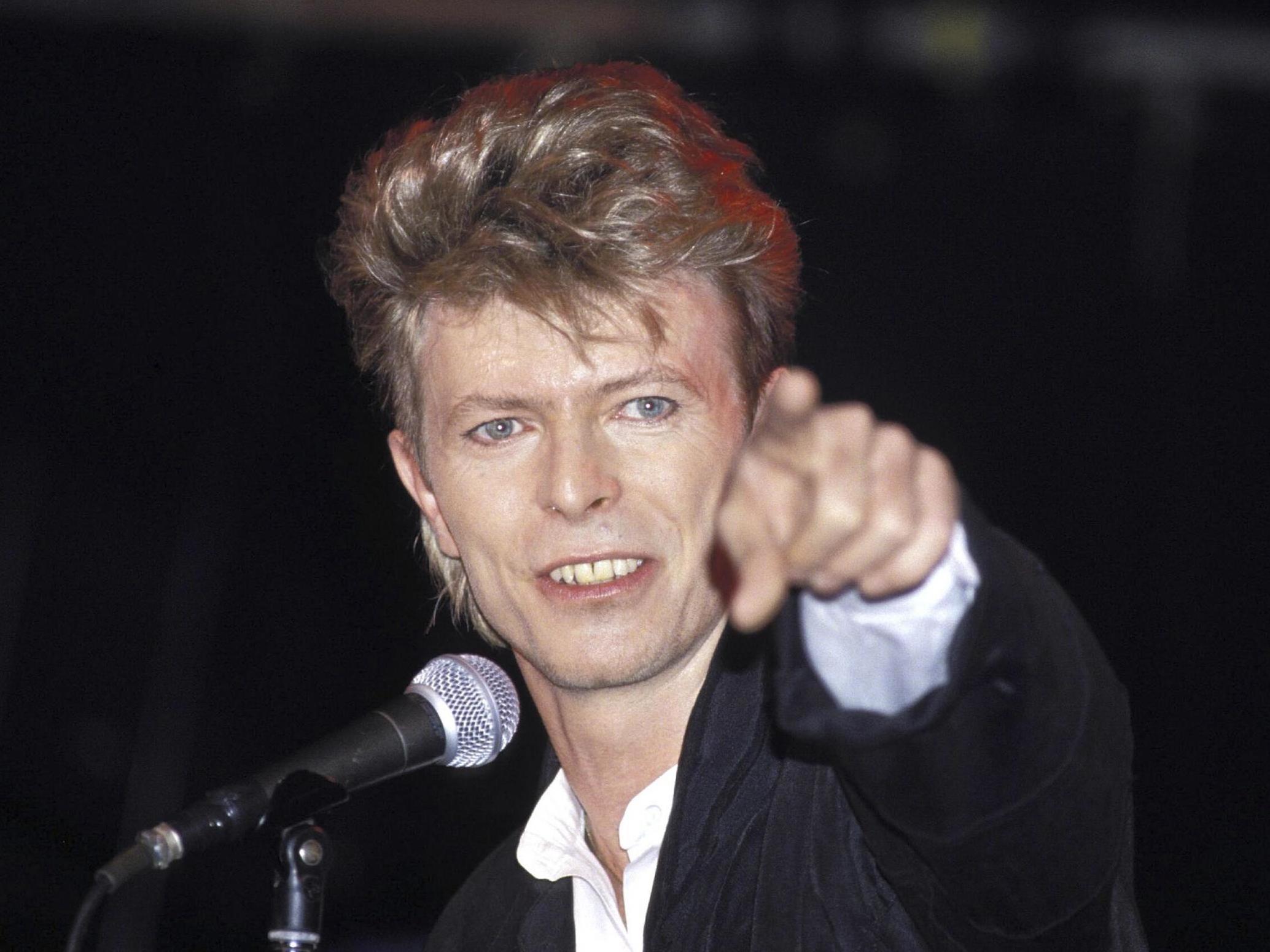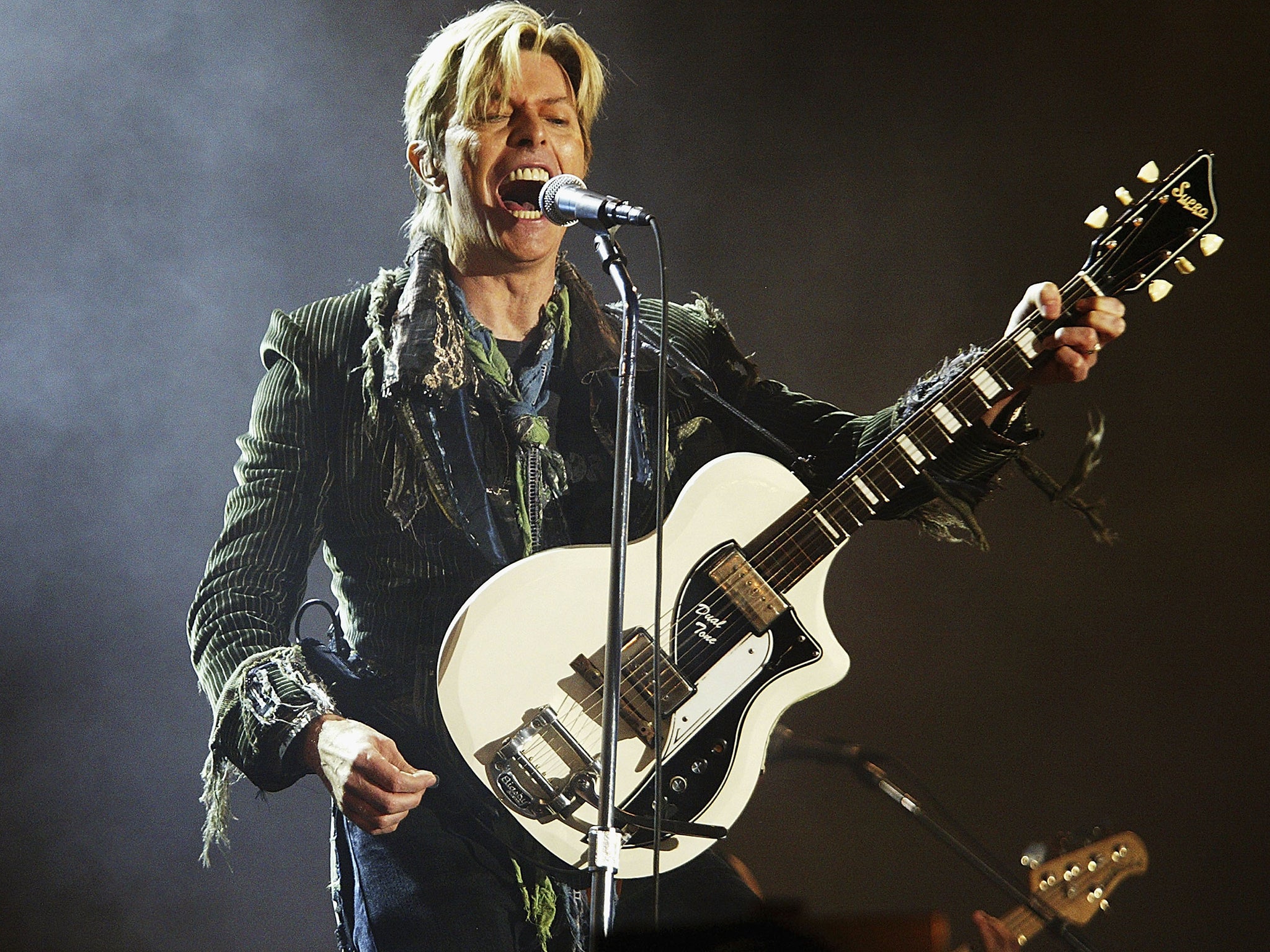Why David Bowie will never really die
Has any other artist transmitted more creative freedom to their fans? Three years since David Bowie’s death, our columnist Lucy Jones reflects on the artist’s enduring legacy


David Bowie left this Earth three years ago today (10 January) and he would have turned 72 on Tuesday (8 January). But of all the musical legends who have died in the last decade, Bowie feels strangely present and alive, thanks to both the internet and the alternative worlds he created which still exist for his fans.
I imagine most people discovered, or will discover, Bowie as teenagers, and to us he said this: you can be who you want. You don’t have to be this way or that way, this kind of boy or that kind of girl. You can be a kook, or a rebel, or quiet and reclusive. You can have mousy brown hair, or fiery red hair, or a golden orb on your forehead. And then you can change.
For his cultural contribution and influence went far beyond the riffs, the melodies and the chords. From the first single he released after changing his name from David Jones to David Bowie – the glorious “Can’t Help Thinking About Me”, which he described as a “beautiful piece of solipsism” – Bowie explored existentialism and the self, both within and outside of Earth’s cultural binaries, but also on a cosmic scale, with his obsession with alien life and science fiction. He explored, confronted and challenged ideas and tropes about identity and transformation, the central concerns of many adolescents.
In breaking his own “suburban curse”, as he put it, Bowie ushered multiple generations of people to do the same. Often, he wrote about loneliness and isolation, a feeling of falling to Earth and not really knowing what’s going on, and either leaving it there and revelling in nihilism or exploring its treatment: connection.
Has any other artist transmitted more creative freedom to their fans? Or had something more meaningful or profound to say about identity? Bowie took himself and his life seriously as a subject, but, crucially, avoided groan-inducing pretension by spiking his art and commentary with humour and silliness (“The Laughing Gnome”, anyone?). He was also deeply self-aware. He said he started wearing costumes because he wasn’t sure if he even had a personality. “I always had a repulsive need to be something more than human.”

Essentially, his legacy lives on because he changed the way people felt about themselves and the world. And not in a flash-in-a-pan way. When swayed here and there by this and that, I often think of his singularity and force, and ape his spirit to forge ahead. Be more Bowie. For me, there are no other artists I summon in this way, and I imagine I will do so in perpetuity. For many of the ideas and values we fold into ourselves in adolescence run through us like writing in a stick of rock.
I wonder if the experience for teenagers discovering Bowie today is really that different to those of us who fell in love with him while he was still alive. Thanks to technology and social media, kids who discover him in 2019 will have vastly more touch points and material to access than I did in the Nineties. Take the new augmented reality app of David Bowie Is, the superlative 2013 V&A exhibition, which chimes perfectly with how forward-thinking he was about technology: let’s not forget that in 1998, Bowie set up his own ISP, BowieNet. Fans can zoom in on the details of his iconic Woodland Creatures bodysuit or the handwritten lyrics for “Starman”.
Google Bowie this week and you might come across a live video of Bowie singing “Hurt” with Nine Inch Nails in 1995 – one I’d not seen before – doing the rounds. Want to hear Bowie in his own words? An archive BBC Radio 4 hour of musings and interviews is available. Oh, look, someone’s tweeted a photo of him looking insanely beautiful on a subway in Japan in 1979. And there’s his mugshot. God, even his mugshot was ridiculously cool. Have I read all of his favourite books? Let’s have a look. (In his Vanity Fair Proust Questionnaire, which is circulating again, he said his idea of perfect happiness was reading.) Ooh, I’ll just have a quick listen of Adam Buxton’s amazing BBC Radio 6 Music Bowie show.
Yes, it’s not quite the same as seeing him perform, but the essence of Bowie, and why we all love him so much, remains as alight as ever. I was lucky enough to see him play at Wembley on his final tour in 2003 but, really, the conceptual stuff has stayed with me the longest.
Enjoy unlimited access to 100 million ad-free songs and podcasts with Amazon Music
Sign up now for a 30-day free trial. Terms apply.
ADVERTISEMENT. If you sign up to this service we will earn commission. This revenue helps to fund journalism across The Independent.
Enjoy unlimited access to 100 million ad-free songs and podcasts with Amazon Music
Sign up now for a 30-day free trial. Terms apply.
ADVERTISEMENT. If you sign up to this service we will earn commission. This revenue helps to fund journalism across The Independent.
Although Bowie died relatively young, there was so much to him, and he means different things to different people, at different stages of their lives. Recovering alcoholics and addicts can draw strength from his sobriety. The bereaved or dying may find solace in his final album, Blackstar, written while he was suffering from liver cancer. I’ve always found the lyrics to “Word on a Wing” speak astutely to the confusion that can result from a particular kind of religious upbringing. Bowie wrote about lust, anger, depression, pain. He wrote about life – and with a vitality that renders him eternal. As Iman wrote this week, #BowieForever.
Join our commenting forum
Join thought-provoking conversations, follow other Independent readers and see their replies
Comments